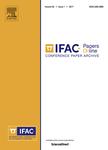版权所有:内蒙古大学图书馆 技术提供:维普资讯• 智图
内蒙古自治区呼和浩特市赛罕区大学西街235号 邮编: 010021

作者机构:Department of Mechanical Engineering University of Alberta Edmonton Canada Teaching and Research Area Mechatronics in Mobile Propulsion RWTH Aachen University Aachen Germany Institute of Automatic Control RWTH Aachen University Germany
出 版 物:《IFAC-PapersOnLine》
年 卷 期:2022年第55卷第24期
页 面:19-26页
主 题:Diesel engines Linear Parameter Variable Model Machine learning Support Vector Machine Model Predictive Control Deep Learning
摘 要:The high thermal efciency and reliability of the compression-ignition engine makes it the first choice for many applications. For this to continue, a reduction of the pollutant emissions is needed. One solution is the use of Machine Learning (ML) and Model Predictive Control (MPC) to minimize emissions and fuel consumption, without adding substantial computational cost to the engine controller. ML is developed in this paper for both modeling engine performance and emissions and for imitating the behaviour of a Linear Parameter Varying (LPV) MPC. Using a support vector machine-based linear parameter varying model of the engine performance and emissions, a model predictive controller is implemented for a 4.5 L Cummins diesel engine. This online optimized MPC solution offers advantages in minimizing the NO x emissions and fuel consumption compared to the baseline feedforward production controller. To reduce the computational cost of this MPC, a deep learning scheme is designed to mimic the behavior of the developed controller. The performance in reducing NO x emissions at a constant load by the imitative controller is similar to that of the online optimized MPC, however, the imitative controller requires 50 times less computation time when compared to that of the online MPC optimization.